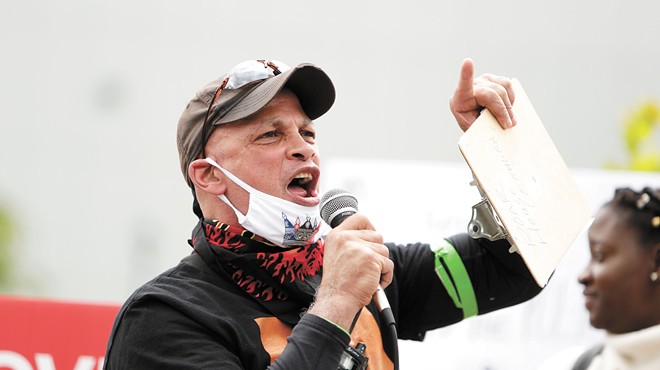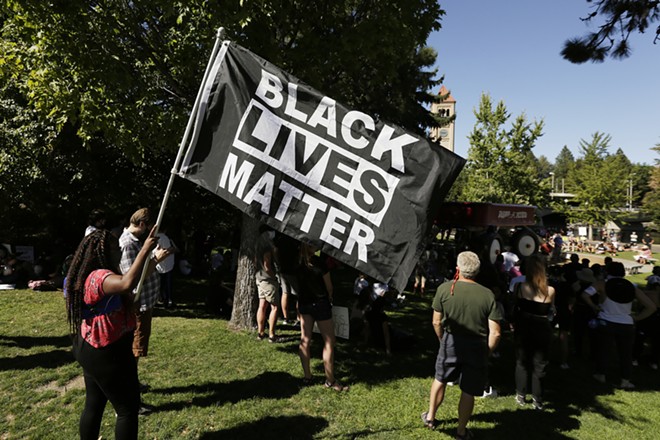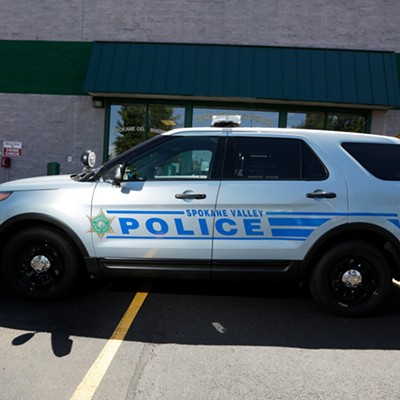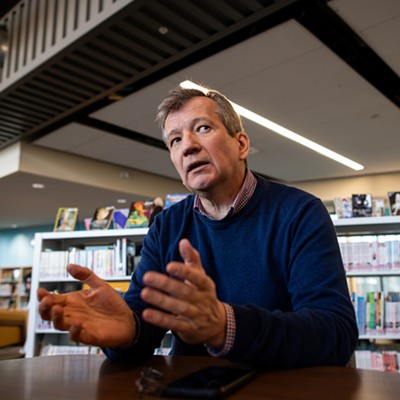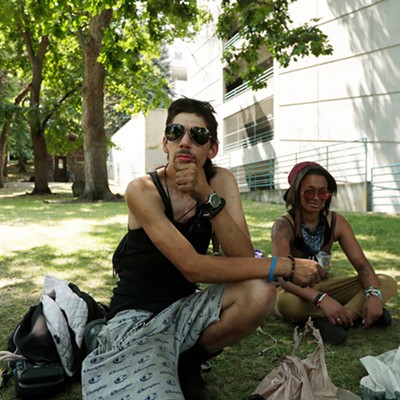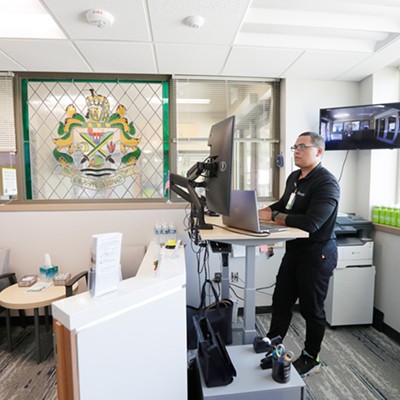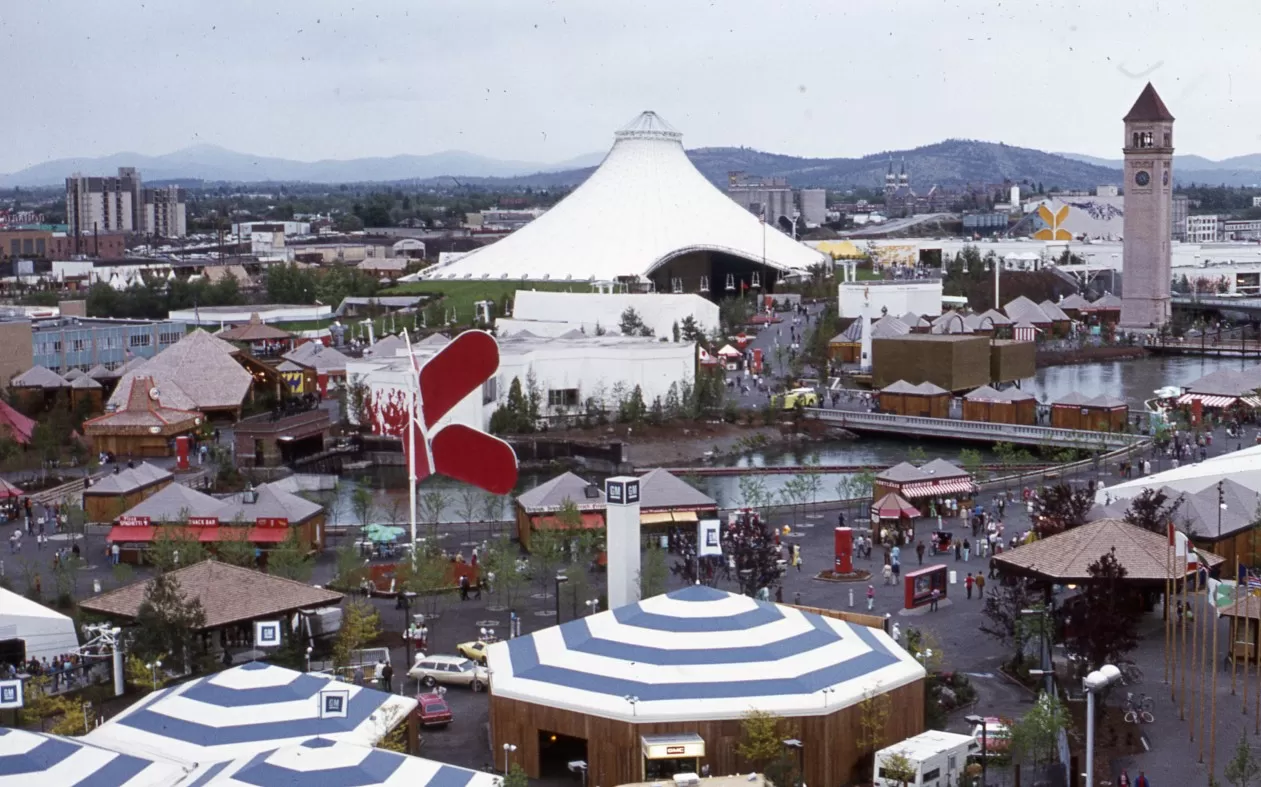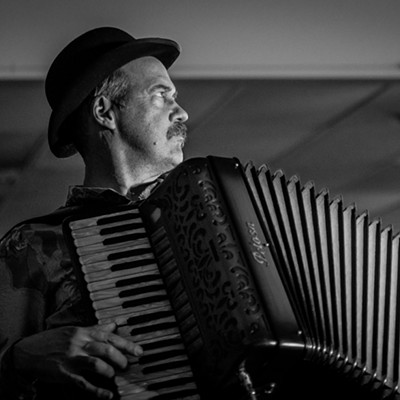
After three years and four troubled, closed-door meetings, the Spokane community groups and city leaders who came together to discuss police reform after George Floyd's murder are walking away frustrated and disappointed.
They outlined their grievances in competing news conferences on Tuesday, after the abrupt cancelation of what was supposed to be the fifth and final meeting.
At noon, representatives from various advocate groups — including the Spokane NAACP, Spokane Community Against Racism, the Asian Pacific Islander Coalition of Spokane, the Peace and Justice Action League and Planned Parenthood of Greater Washington and North Idaho — gathered to announce that they would no longer be participating in roundtable meetings with the city.
The speakers accused police and city leaders of disrespecting them, dragging their feet and participating in the discussions in bad faith.
"The unpaid community members who answered the city's invitation in good faith have nothing to show for their time," said Pastor Walter Kendricks.
"The conversation is too important for this kind of blatant disregard for others who have come to the table in these conversations," Woodward said.
Even before the first meeting took place, some of the community groups were skeptical about the process.
In a Google Doc used to plan the meeting, organizers noted concern about not being involved in the planning process, not being given a list of clear objectives and the city's focus on "personal stories instead of the systemic change the community is asking for."
The community groups' hesitation echoed those of many activist groups across the country, who saw proposed "listening sessions," "community conversations" and "lived experience sharing" as buzzwords — an attempt to placate the rage and calls for systems change that rose from the protests that summer. Sure, the politicians were willing to come to the table, but would they actually listen and take action?
The answer, according to the community leaders who spoke Tuesday, was "No."
"We hoped city leaders would do something and we were willing to collaborate," Kendricks said. "Unfortunately, I personally felt from the very beginning that these community conversations were riddled with issues of inequality, disrespect, bad faith participation and undermined by those in charge."
The problems continued over subsequent meetings.
"The process, we'll admit, has not been perfect," Woodward said, attributing delays to a number of factors, including pandemic restrictions, discussion facilitators dealing with issues in their personal lives, the death of civil rights activist Sandy Williams and the targeted shooting of a Spokane police officer.
The community leaders say trust was undermined by city leaders setting the terms of the meetings, a YouTube video from former Spokane County Sheriff Ozzie Knezovich criticizing local activists, the conflicts over Camp Hope, the East Central Library and the Spokane School Board, and "misleading" police statements about "skyrocketing crime" and a man killed by police last year. Organizers were also frustrated about being asked to sign non-disclosure agreements and avoid publicly sharing what was discussed in the meetings. Woodward says the intent of the NDAs was to protect people's privacy amid sensitive conversations.
"These are but a handful of the incidents and circumstances that eroded our trust in the roundtable process," Kendricks said. "But most notably, after three long years, the policy proposals brought forth by council president Breean Beggs have not moved forward."
Despite the sour ending, both parties say the discussions weren't a complete waste of time.
"We got to have honest conversations that we've never had in a setting with stakeholders at the same table," Woodward said.
Moving forward, Woodward said she and Meidl are turning their attention to policing conversations at the state level — namely the recently passed laws surrounding police pursuits and drug possession, which both Meidl and Woodward have repeatedly criticized as hampering law enforcement's ability to do its job. After Tuesday's news conference, the pair tuned in to the state legislature to testify remotely against the pursuit law.
The community groups say they also plan to continue the conversation — just not with the city.
When asked if they think anything productive came of the meetings, Jac Archer, an organizer with the Peace and Justice League, said they were able to find broad agreement on many of the proposals.
"There was what could be characterized as some forward movement, " Archer said. "But the conversation ground to such a halt and moved so slowly, and we were unable to talk to our communities about the progress being made. It's hard to take as much pleasure in that little bit of agreement."
Archer says they hope the proposals discussed by the group will be revisited. After the meeting fell apart on Tuesday, Beggs released a draft copy the reform proposals — complete with feedback gathered by police and the community groups over the course of the four community conversations.
Woodward argues that a lot of the proposals on Beggs' list are things Spokane police are already doing. Other items, she says, "deserve a lot more conversation," and will "need to be debated."
You can read the list of reform proposals here:

